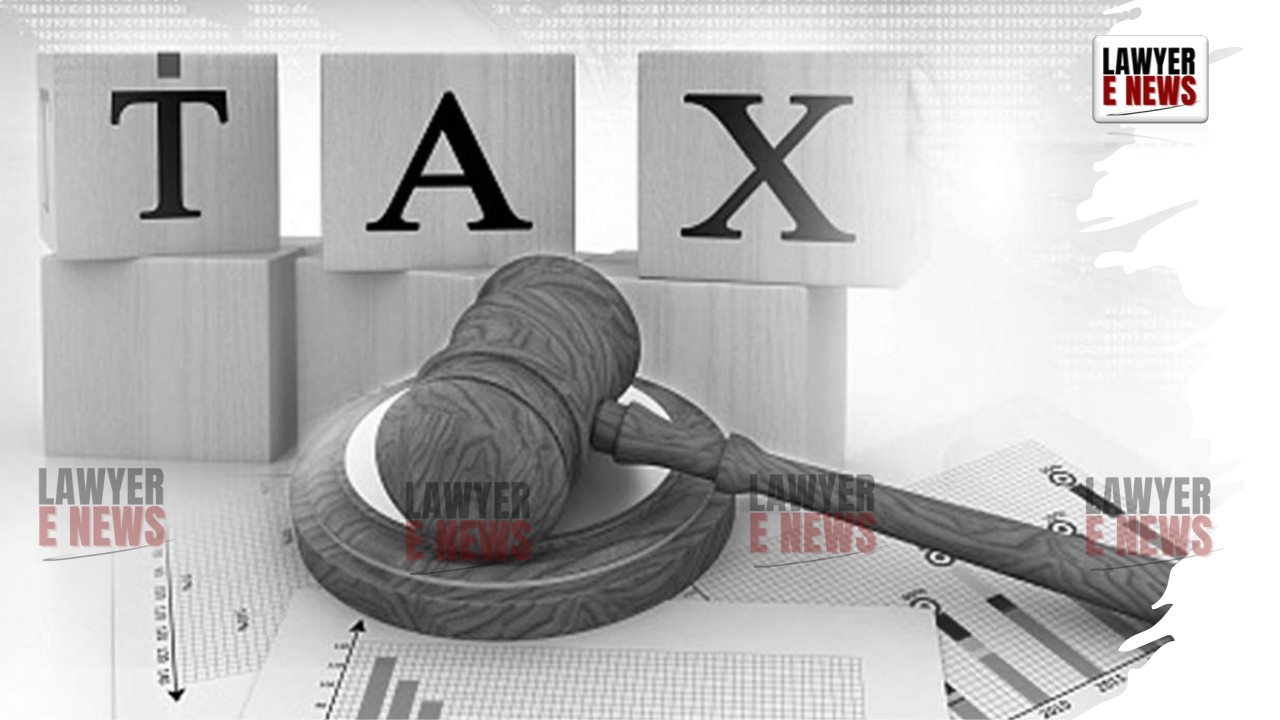-
by sayum
14 February 2026 2:22 PM



Bombay High Court declaring that modifications to the e-filing utility for income tax returns that restrict taxpayers from claiming rebates under Section 87A of the Income-tax Act, 1961, were unconstitutional. The Court held that tax collection must adhere strictly to statutory provisions and cannot be restricted by administrative tweaks to e-filing systems. Justice M. S. Sonak and Justice Jitendra Jain emphasized that “no tax shall be levied or collected except by authority of law,” reiterating the fundamental principle enshrined in Article 265 of the Constitution of India.
"Access to Justice Cannot Be Denied at the Threshold": Bombay HC on Restrictive E-Filing Utilities
The petition, filed by The Chamber of Tax Consultants, representing 3,800 tax practitioners, and individual taxpayers, challenged the modification to the online utility implemented on July 5, 2024, which prevented taxpayers from claiming the Section 87A rebate. The rebate, available to individual taxpayers earning below a specified threshold, had been restricted when taxes were computed under Section 115BAC (the new tax regime).
The petitioners argued that this restriction violated Articles 265 and 300A of the Constitution, which prohibit arbitrary deprivation of property and ensure that taxes are collected only with statutory authority. The Court observed:
“Preventing taxpayers from raising a bona fide and debatable claim at the threshold is unconstitutional and contrary to the Income-tax Act’s adjudicatory framework. The e-filing utility is meant to facilitate compliance, not obstruct taxpayers from exercising their statutory rights.”
Tax Filing Utility Cannot Preclude Bona Fide Claims, Rules Bombay HC
Justice Jitendra Jain, writing the judgment, emphasized that the Income-tax Act does not authorize the Central Board of Direct Taxes (CBDT) to design e-filing utilities that debar taxpayers from making claims. He noted that Section 87A entitles eligible taxpayers to a rebate, and the question of whether it applies alongside Section 115BAC is debatable and must be adjudicated by quasi-judicial authorities, not resolved unilaterally by the Revenue through administrative measures.
The Court stated: “Restricting claims at the filing stage is akin to denying access to justice. The Act allows taxpayers to self-compute their income and make claims, which can then be verified by assessing officers under Sections 143(1) and 143(3). Administrative tools cannot replace adjudication.”
Constitutional Safeguards in Tax Law Upheld
The judgment strongly relied on Article 265 (“No tax shall be levied or collected except by authority of law”) and Article 300A (“No person shall be deprived of his property save by authority of law”). The Court underscored the sanctity of these provisions, holding that administrative restrictions like tweaking filing utilities to deny claims “transgress constitutional boundaries.”
The Court also referenced Goetze (India) Ltd. v. CIT (2006) and CIT v. Ranchhoddas Karsondas (1959), emphasizing the importance of allowing taxpayers to make claims in their returns, which can then be reviewed through the assessment and appellate mechanisms under the Act.
“The Revenue cannot resolve statutory ambiguities in its favor by tweaking the e-filing utility. Disputed claims must be adjudicated through due process, not executive fiat,” the Bench remarked.
Relief Granted: E-Filing Utility to Be Modified for Section 87A Claims
The Court issued a writ of mandamus, directing the authorities to immediately modify the e-filing utility to allow claims under Section 87A for the Assessment Year 2024-25 and subsequent years. It clarified that:
Tax authorities must process claims under Section 87A without prejudging their legality.
Decisions on the merits of claims under Section 87A would be referred to the quasi-judicial authorities under the Income-tax Act.
The Court declined to entertain vague and omnibus requests for broader procedural changes but left the door open for similar challenges in future cases.
"Revenue’s Actions Cannot Render Statutory Remedies Redundant"
The Court observed that the modifications to the utility effectively rendered statutory remedies under the Act, such as assessment and appeals, redundant. Addressing the argument by the Additional Solicitor General that Section 87A rebates were incompatible with Section 115BAC, the Bench stated:
“This issue is highly contentious and requires adjudication. At this stage, we cannot conclusively determine whether Section 87A rebates can be claimed alongside taxes computed under Chapter XII provisions, including Section 115BAC. However, the Revenue’s administrative interpretation cannot be imposed unilaterally by denying taxpayers the opportunity to even raise the claim.”
The Bombay High Court’s judgment underscores the principle that tax governance must align with the Rule of Law and respect statutory frameworks. The decision affirms taxpayers' rights to raise bona fide claims, even if contentious, without arbitrary restrictions imposed through administrative measures. The ruling serves as a reminder to tax authorities that technology, while indispensable for efficiency, cannot override constitutional guarantees or deny access to justice.
Date of Decision: January 24, 2025
